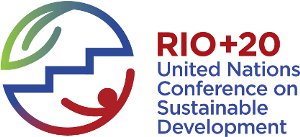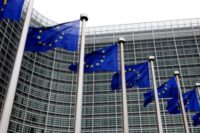 Brazil, Denmark, France and South Africa have announced that they are forming a group of ‘friends of paragraph 47’ - a reference to paragraph 47 of the UN Conference on Sustainable Development – Rio+20 – outcome document.
Brazil, Denmark, France and South Africa have announced that they are forming a group of ‘friends of paragraph 47’ - a reference to paragraph 47 of the UN Conference on Sustainable Development – Rio+20 – outcome document.
Their goal is to advance corporate sustainability reporting. The four are inviting other countries as well as Global Reporting Initiative (GRI) and the United Nations Environment Programme (UNEP) to join in the effort.
“Corporate transparency and accountability are key elements to enhancing the private sector’s contribution to sustainable development,” according to a statement released by the group. “Making sustainability reporting standard practice among the companies will contribute to monitor the impacts and the contribution to a sustainable development.”
Brazil, Denmark, France and South Africa are regarded as pioneers in sustainability reporting practice and policy. According to Villy Søvndal, Denmark’s Minister for Foreign Affairs, large companies in Denmark are required to report their economic, environmental and social performance, or explain why they do not report.
“Governments can play a crucial role in driving sustainability practices and disclosure at a national level,” said Søvndal. “In Denmark, the legal requirement for the largest companies to report is having positive effects – increasing Danish companies’ international reputation and creating value for the companies and their stakeholders. These positive outcomes have in turn motivated more companies to address their Corporate Social Responsibility and to report on their sustainability performance. The Rio+20 Conference should inspire more governments and businesses to adopt sustainability reporting as a driver for sustainable development.”
Similarly, in South Africa companies listed on the Johannesburg Stock Exchange are required to produce a report integrating their financial and sustainability performance, or explain why they do not – a requirement of the King III Code.
Edna Molewa, Minister of Water and Environmental Affairs for South Africa, explains the benefits. “King III has provided a platform for compulsory integrated sustainability reporting for all companies listed on the Johannesburg Stock Exchange (JSE), this means that all these companies are required to report on their environmental, economic, social as well as governance performance. Adoption of more sustainable approaches will create new green jobs, open up new investment opportunities and export markets; supports the creation of knowledge based economy and allow South Africa to set standards and demonstrate thought leadership.”
Sustainability reporting was endorsed at the Johannesburg Sustainable Development Summit in 2002. At that time, businesses were encouraged to use the Global Reporting Initiative (GRI)’s Sustainability Reporting Framework.
Since 2002 GRI, of which UNEP was a founder, has developed into the global de facto standard for sustainability reporting. Thousands of companies have responded to the Johannesburg call by reporting their sustainability performance, both in industrialized and emerging economies. Companies and their investors, customers, and employees have discovered the value of transparency for business, markets, and communities. UNEP through its Finance Initiative has been working with financial institutions since 1992 to encourage the incorporation of corporate sustainability information within their financial decision making – for which the availability of more and consistent data is key.
Achim Steiner, UN Under-Secretary General and UNEP Executive Director, said; " The momentum is rapidly gaining ground among countries, responsible investors, an increasing number of corporations and forward-looking sectors of civil society--today's announcement offers further momentum to accelerate and scale-up accountability towards the future we want and the future seven billion people need.”


